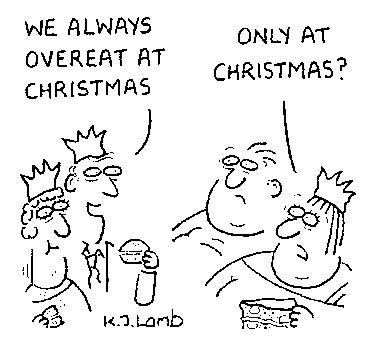All modern biographies, one could say, are books of secrets; certainly all biographers during the past four decades have felt entitled to ferret around in their subject’s private as well as public lives.
All modern biographies, one could say, are books of secrets; certainly all biographers during the past four decades have felt entitled to ferret around in their subject’s private as well as public lives. This development is routinely ascribed to the new frankness with which Michael Holroyd re-invented the genre in the late 1960s with his biography of Lytton Strachey, who had himself revitalised it 50 years earlier with his subversive portraits of Eminent Victorians.
It seems appropriate, then, that Holroyd’s latest (and, he maintains, his last) book signals yet another change of direction, albeit one that has been becoming increasingly clear over the past few years. Recently, murmurings of disenchantment with substantial cradle-to-grave biographies have become louder. Such books, we hear, are out. Other more selective, more personal forms are in. Advances are down, writers are worried.
But has anything really changed, or is it just a passing shift of emphasis, a nervous publishing industry’s attempt to identify and exploit a trend? We have been here before; after all, it was Virginia Woolf who wrote ‘I want to revolutionise biography in a night’ as she embarked on Orlando, still the most personal and experimental biography of all and published in 1928.
Certainly, Holroyd’s new book is strikingly unlike any of its predecessors. A sequence of loosely linked biographical episodes and reflections, it is also the final volume of his ‘confessions of an elusive biographer’, which started with Basil Street Blues and continued with Mosaic. It is as if, having mastered the genre with his long, scrupulously researched, annotated, narrative biographies of Strachey, Augustus John and George Bernard Shaw, and his more recent portrait of the Irving and Terry theatrical dynasty, he has sighed with relief, torn up the blueprint he did so much to formulate and set himself free.
Subtitled ‘Illegitimate Daughters, Absent Fathers’, this short, richly evocative and beautifully written book revolves around a romantic house, the Villa Cimbrone at Ravello on the Italian coast, and two early 20th-century casualties of love, Eve Fairfax and Violet Trefusis. Both were, in their time, much admired; but Eve, a muse and perhaps mistress of Rodin, was abandoned by her fiancé Lord Grimthorpe, and Violet, Vita Sackville West’s great love and Grimthorpe’s illegitimate daughter, was also rejected.
Both became, in old age, eccentric and much mocked, their lives defined by their scandalous past and famous connections. Holroyd has deliberately turned away from major to minor characters, from men of achievement to women, as he suggestively calls them, of no importance. Without preaching, he redresses biography’s traditional balance.
He also breaks open what he refers to as the prison of chronology. This book pays little or no attention to the order in which people meet or things happen; it is full of good stories, but has no real narrative. Biographies have traditionally had a tendency to tidy life up; here, Holroyd revels in the contingent, the accidental, the unfinished story and the unfulfilled love. And whereas in his previous biographies he has kept himself out of the picture, and any personal encounters with his sources have been confined to introductions or footnotes, in this book he, and they, are very much present.
Indeed, it has obviously amused him to break one of the rules most biographers of contemporary or near contemporary characters are wise to observe: avoid personal involvement with your sources, especially if they are even more obsessed than you are with your subject. Some of the most engaging passages of this book — and Holroyd’s wry humour has never been better deployed — concern his adventures with Catherine from Yorkshire, a probable descendant of Lord Grimthorpe, in search of her own identity, who takes him on hair-raising drives in pursuit of Eve and her mighty commonplace book, and Tizia from Rome, a young disciple of Violet Trefusis, who invites him to Cimbrone and entangles him in her passionate campaign to get Violet her due at last. Here, Holroyd recognises and celebrates the way that the pursuit of someone else’s life always affects your own.
When Tizia invites him to talk at Cimbrone about Violet, Holroyd, still convalescing from serious illness, finds himself beguiled into revisiting the Bloomsbury group through whom he first made his name, ‘whose members’, he writes, tongue characteristically in cheek, ‘I was surprised to read, frequently visited Ravello’. True, Lytton Strachey went once and fantasised about transplanting the circle, and E. M. Forster was inspired there to write his crucial Story of a Panic, in which a young boy encounters pagan sexuality in the woods; but Holroyd soon turns away from Bloomsbury to a full reconsideration of Violet Trefusis in her own right. He shows, convincingly enough, how her life and reputation never recovered from the wreckage of her passion for Vita, especially after Vita’s son Nigel Nicolson edited and published his mother’s account of the affair (Portrait of a Marriage, 1973). He is perhaps less convincing about her standing as a novelist, although both Carmen Callil and Lorna Sage also championed her as a writer.
In the end, though, this book is more a personal experiment with theme and form than proof that one of the masters of biography has abandoned the craft. Holroyd’s skills as a researcher and detective are fully deployed, in miniature; and only a master could pull off such a book. In the end, as Holroyd has long proclaimed, biography is a flexible, shapeshifting art. There is room for the traditional and for the experimental; the boundaries are not fixed. Good biographies, he maintains, have always been ‘largely works of the imagination; the fictions we tell are part of the lives we lead.’






Comments